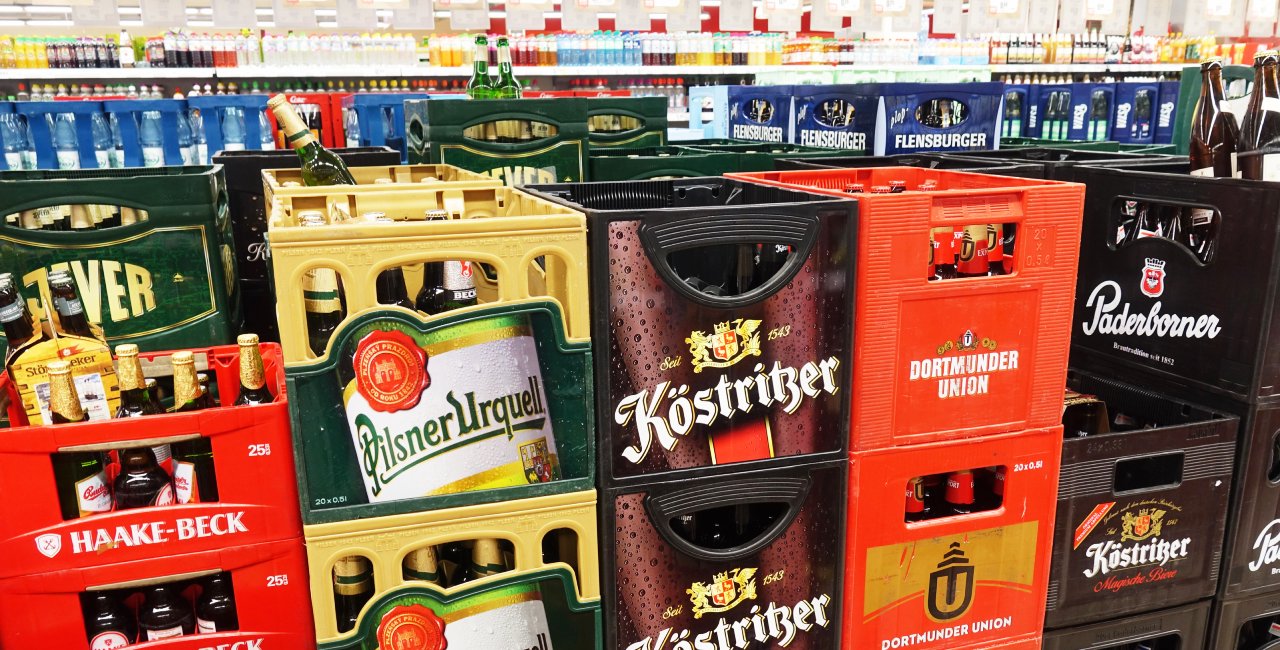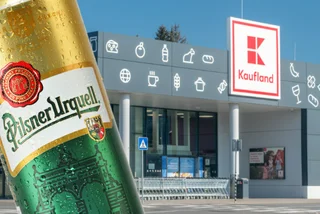Czech consumers have long bristled at higher prices for international food products on the domestic market, with local politicians even using Nutella as an example of unfair price disparity in election campaigns. But now, local consumers are even seeing higher prices for Czech-made products at home.
Pilsner Urquell, one of the most iconic and best-selling beers in the Czech Republic, is paradoxically significantly cheaper in neighboring Germany than it is at home. While Czech shoppers regularly pay CZK 26 to CZK 39 per bottle or can, German consumers can find the same beer for as little as CZK 17.
According to Novinky.cz, recent promotions in Berlin supermarkets such as Rewe and Edeka have offered a 20-pack of bottled Pilsner Urquell for EUR 14, translating to roughly CZK 17 per unit. Meanwhile, a 15-pack on sale in a Czech Kaufland store still costs CZK 388—almost CZK 26 per bottle.
The stark contrast has stirred online backlash among Czech consumers and prompted broader questions about pricing strategies and market dynamics.
No clear answer from brewer or retailers
Despite mounting criticism, neither Plzeňský Prazdroj—the brewer of Pilsner Urquell—nor Czech retailers are offering a clear explanation for the pricing disparity. Both parties cite confidentiality agreements and business strategies as reasons for withholding wholesale price details.
“The final price is always determined by the retailer,” Prazdroj spokesman Zdeněk Kovář told Novinky.cz, adding that beer is used by supermarkets, particularly in Germany, as a key product to draw customers in. This tactic, he suggests, may explain the lower price point abroad.
He also pointed to other potential factors such as a small difference in VAT rates—Germany levies 19 percent on alcohol, while Czechia imposes 21 percent. However, this 2 percent gap fails to account for the roughly 35 percent price difference observed between the two markets.
Retail representatives are equally guarded. Tomáš Prouza, head of the Czech Confederation of Commerce and Tourism, cited competition regulations as the reason the group cannot disclose procurement prices. Still, he publicly questioned whether Prazdroj maintains different pricing models for Czech and German partners.
In response, former finance minister Miroslav Kalousek took the debate further, saying the issue may lie with Czech consumers themselves. “If people stopped buying the beer at those prices, the prices would drop. Maybe we’re just too comfortable,” he said.
Market power and branding drive local prices
Some industry analysts believe the price gap may be explained by the Czech brewery’s dominant position in its home market. Plzeňský Prazdroj holds around 44 percent of the domestic beer market, producing other brands such as Gambrinus, Radegast, Kozel, Frisco, and Birell.
“Pilsner Urquell has been turned into a premium brand in the Czech Republic,” said Tomáš Maier, a beer industry expert at the Czech University of Life Sciences. “It demands an inflated price, even though its production costs are similar to other local beers. The brewery reportedly earns more than CZK 3 in net profit per half-liter sold in the Czech market.”
Marketing expert Robert Le Veneur added that while retailers set the final price, their room to negotiate is limited. “Czech supermarkets largely accept Prazdroj’s suggested pricing because rejecting it could risk losing access to the full portfolio of popular brands, which could threaten their business,” he told Novinky.cz.
Legal experts note that there is nothing unlawful about a producer setting different prices across markets, so long as the rationale is rooted in objective business factors such as logistics, costs, or market strategy. But without transparency on wholesale pricing, the precise cause of the disparity remains speculative.



